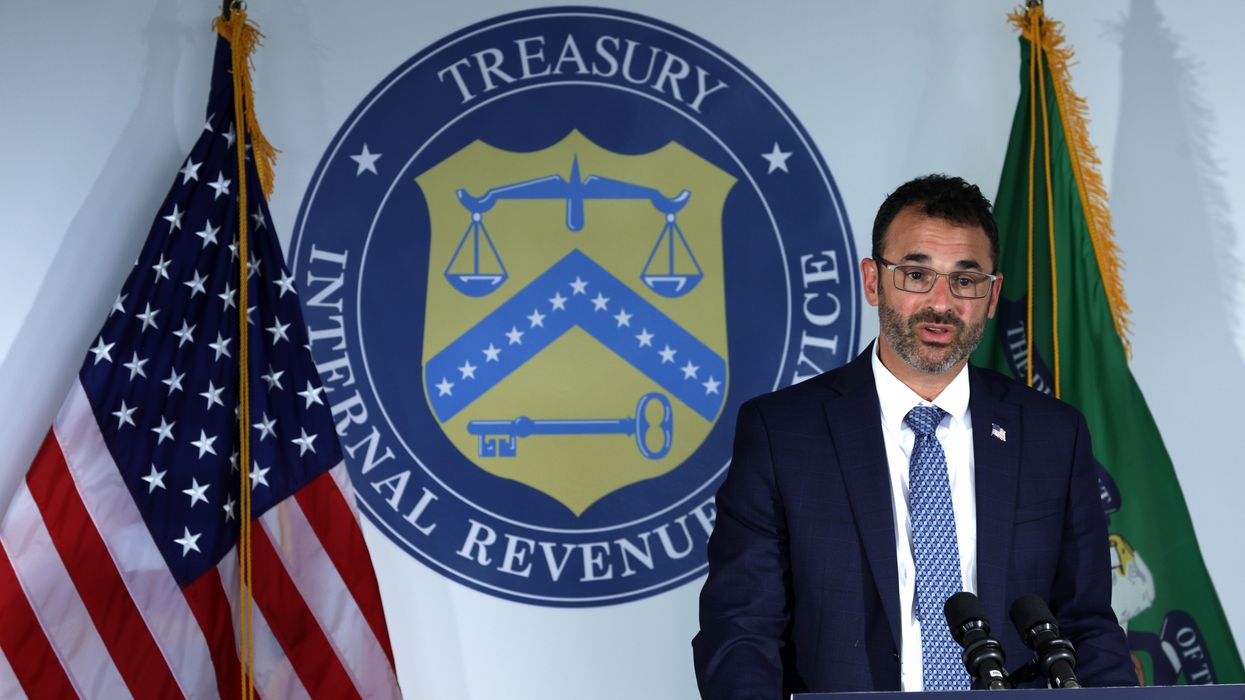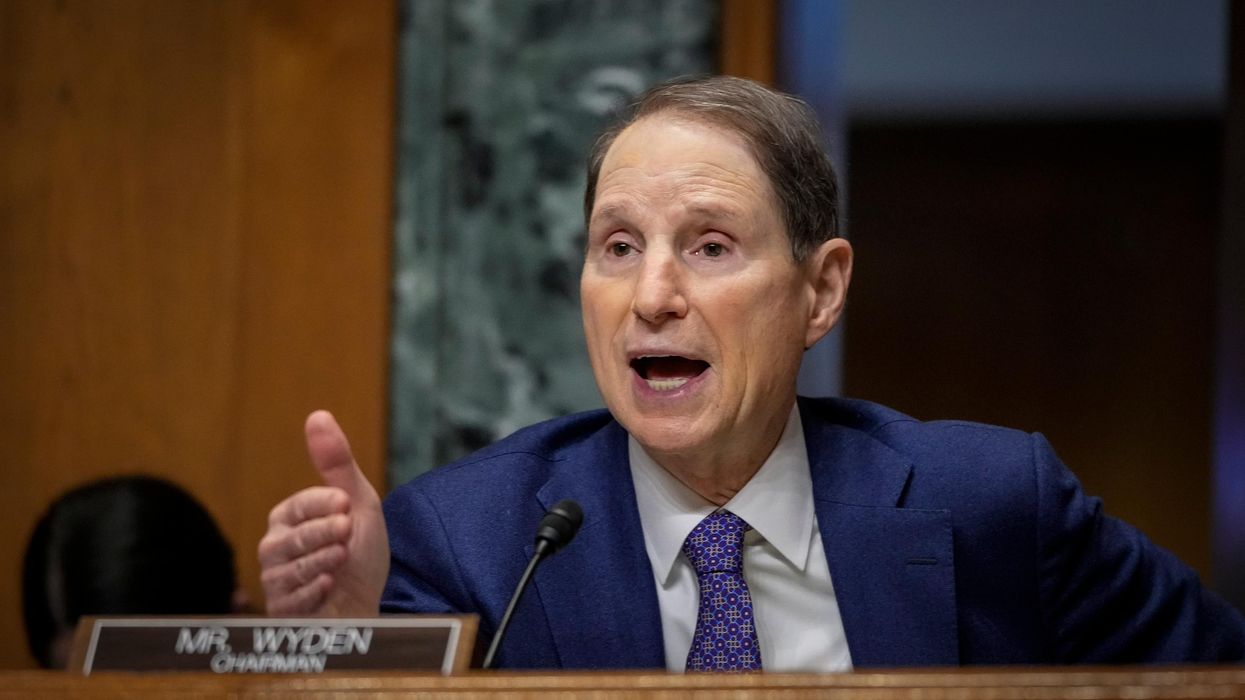1.4 Million Wealthy Americans Are Evading Nearly $66 Billion in Federal Taxes
U.S. Sen. Ron Wyden called on the IRS to further strengthen tax dodging enforcement, including criminal prosecution referrals.
Citing "alarming" data provided by the federal government about the prevalence of tax evasion among the richest Americans, U.S. Sen. Ron Wyden on Thursday called on the Internal Revenue Service to crack down on "particularly brazen" high-income tax cheats and noted that Democratic initiatives have already helped to begin addressing the problem.
Writing to IRS Commissioner Danny Werfel, the Oregon Democrat and chair of the Senate Finance Committee cited data provided by the agency regarding taxes filed from 2017-20.
More than 1.4 million wealthy Americans have still not filed their taxes for those years, Wyden said, with the total amount owed to the federal government reaching "a whopping $65.7 billion"—almost enough to fund a universal childcare program for one year or a universal school lunch program for more than two years.
Nearly 1,000 people who earn $1 million per year or more have yet to file their tax returns, but Wyden wrote that the "most alarming" revelation in the data provided to his committee by the IRS "was the extraordinary amount of unpaid taxes owed by a small subset of ultra-wealthy non-filers," with the 2,000 highest-earning tax dodgers currently owing $923 million.
These high earners, said Wyden have "access to professional advisors and are well aware of their filing obligations with the IRS," but continue to withhold hundreds of millions of dollars that could support food aid, housing assistance, public health efforts, and other federal programs.
"These are people who essentially blow raspberries at the IRS," Wyden toldWashington Post columnist Greg Sargent on Thursday. "They're sophisticated people. They know this is wrong, wrong, wrong. And they do it anyway."
On social media, the senator noted that Republicans in Congress—and those running for president in 2024—aim to drain the IRS of its resources and "[make] it easier for the rich to cheat on their taxes," while Democrats included $80 billion in the Inflation Reduction Act to strengthen enforcement against tax evasion.
With the data provided to the Senate Finance Committee pertaining to 2017-20, wrote Sargent, it "underscores that when the IRS is underfunded, wealthy tax cheats benefit in a big way. An underfunded IRS is what Republicans are advocating for."
After being elected U.S. House Speaker in January, Rep. Kevin McCarthy's (R-Calif.) first action was to propose a repeal of the IRS enforcement funding. Republican presidential candidates including Florida Gov. Ron DeSantis and Sen. Tim Scott of South Carolina have also called for a repeal of the IRA provision, claiming it's an attack on working-class Americans.
But the GOP narrative about IRS enforcement contrasts with the reality, wrote Sargent.
"Unfortunately for Republicans, enforcement funded by [the IRA] has paid off—bringing in more than $38 million from 175 rich tax delinquents, the IRS announced in July," he wrote. "And this month, the agency announced plans to use the funding for still more efforts targeting wealthy tax avoiders."
With tax evasion from previous years still affecting federal coffers, Wyden told Werfel in his letter that the IRS should "initiate enforcement actions against every single millionaire non-filer as part of its ongoing effort to use Inflation Reduction Act funding to restore fairness in tax compliance."
"I also urge IRS to utilize the enforcement tools available to it for instances of willful millionaire non-filers," he added, "including referrals to DOJ for civil or criminal prosecution, liens, and levies."


